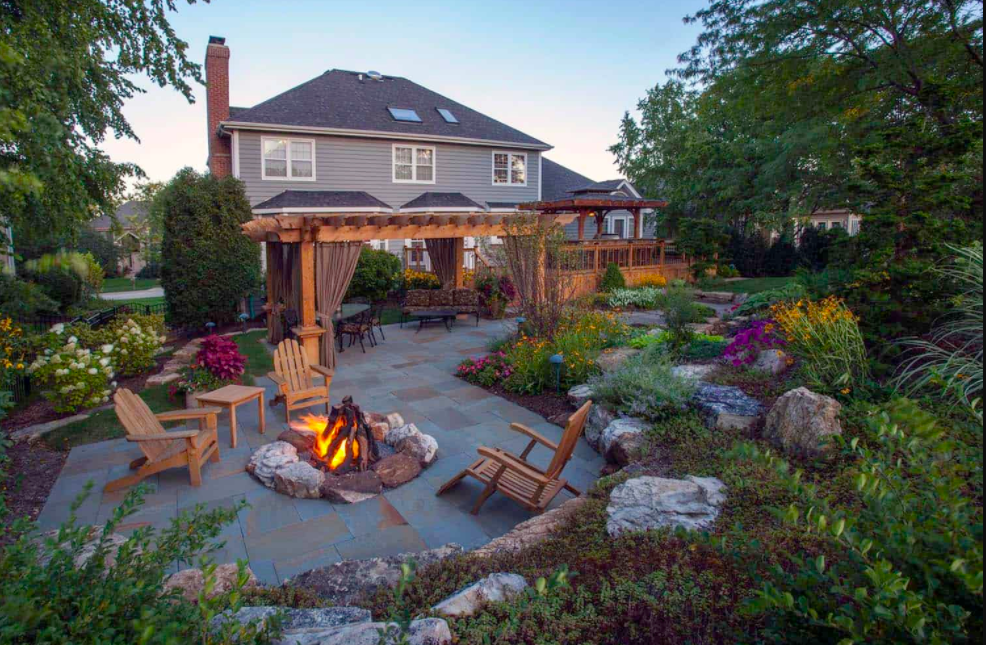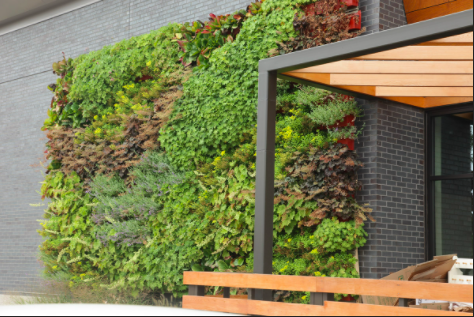7 Eco Landscaping Ideas
Being more conscious of our impact on the environment is becoming increasingly important in our everyday lives. Being environmentally aware extends beyond what we eat, how we travel and if we recycle, it extends to our gardens as well.
If you are planning to update your outdoor space in a small or extensive way, it is important to also consider your impact on the environment and adding environmentally-friendly options.
To help you get started, we have put together 7 eco landscaping ideas that you can try at home, reducing your carbon footprint, saving on waste and supporting your local wildlife.
Reduce your lawn size:
Reducing the size of your lawn area will instantly cut down on your water use. Get creative when designing your backyard. Installing more ecologically diverse soft surfaces, like flower beds and a fire pit, patio and rain gardens are all great ideas that reduce lawn size and reduce your water usage. Lawn size is a leading factor in the environmental impact of your landscaping.
2. Replace grass with ground cover crops:
Low growing plants that spread across a wide area are known as ground cover crops. They discourage weeds from growing, helping to eliminate the need for harmful herbicides. Some ground cover crops, like Thyme, add a beautiful fragrance when walked on and are quite hardy and ideal for sunny areas. They are sweet smelling, feel good with bare feet, and need only little watering.
3. Plant Native Plants:
Using Native plants helps wildlife by providing them food sources that have become increasingly hard to find. They also attract all the pollinators to your garden, like butterflies, bees and other useful insects and small native birds. These plants have adapted to the weather and soil situation in your region, therefore requiring little to no fertilizer. They also have a natural immunity to pests and diseases, all of which makes native plants easy to care for in our climate. Not into insects? You could also try birdscaping to attract beautiful birds of all kinds to your front or backyard. Some plants that are native to the Southern Georgian Bay area that we like to work with are: Bee Balm, Catmint, Daisies, Echinacea, Garden Thyme, Lavender, milkweed and sunflowers.
4. Harvest Rainwater:
Rain water is a free source of water that you can use to limit your dependence on the public water supply. Installing rainwater harvesting devices will reduce your environmental “footprint” and lower your water bill. There are three main ways to collect rainwater: collection through rain barrels, a Dry system and the Wet system. Collection, storage and delivery are all things that you would need to consider when installing your rainwater collection. You can plant a vegetable garden or garden bed close to this system to benefit from the harvested rainwater and an easy watering system.
5. Natural Pest control and herbicides:
Instead of toxic chemicals to control weeds and pests in the yard, why not try using more natural methods? The advantage of natural pest control methods is that they dont kill insects and their predators (like birds) indiscriminately. They won’t leave harmful chemical residues on the lawn where children and pets play either. Some examples include: insecticidal soaps, oil spray, stale beer, hollowed-out grapefruit halves, neem oil and more.
6. Green Walls
Green walls are one of the latest trends for exterior design, and for good reason. They are beautiful, healthy and the benefits far outweigh the costs and maintenance.
Plants absorb sunlight, 50% is absorbed and 30% is reflected. This helps to create a cooler home if placed on the southern exterior wall thus reducing your air conditioning bill. You can customize your green wall, allowing it to become a conversation piece when you are entertaining guests.
7. Permeable pavement with a porous surface that is composed of concrete, open pore pavers or asphalt with an underlying stone reservoir. Also considered as green pavement, it allows water to run through it rather than accumulate on it or run off of it. The precipitation and water get stored in the reservoir from where it slowly infiltrates the soil below or is drained via a drain tile. The stone or gravel acts as a natural filter and clears the water of pollutants.
Beautifying your outdoor space is good for your mind, your wallet and the environment. If you would like to know more about any of these eco-friendly landscaping methods in the Southern Georgian
Bay region, please get in touch with us.








